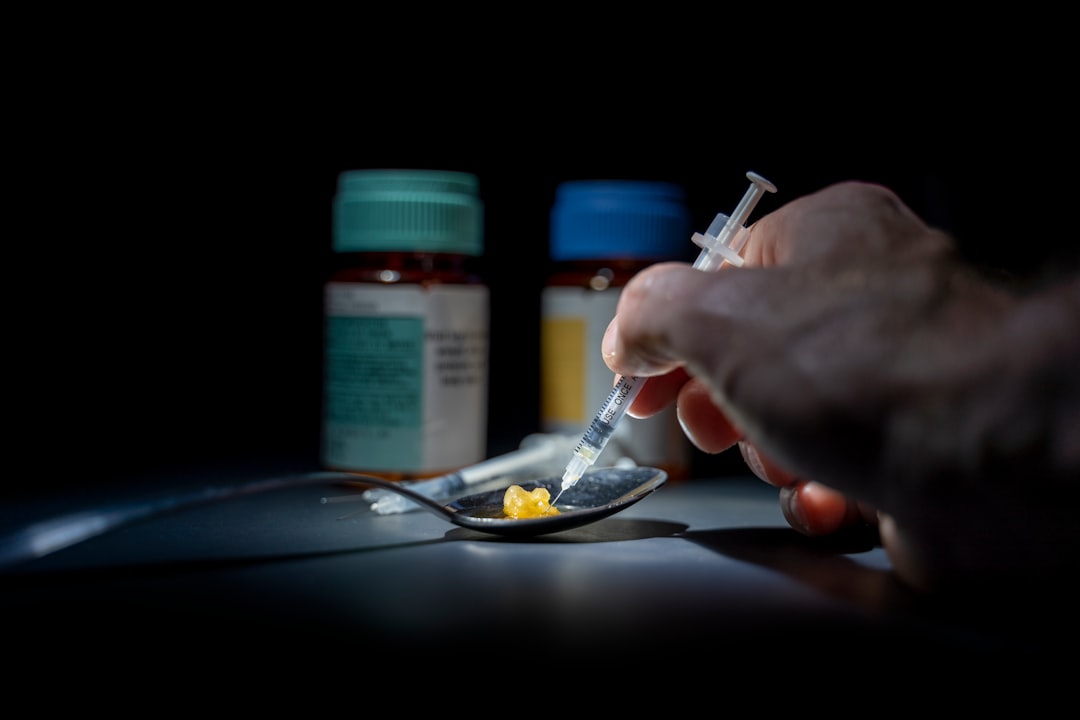 Photo by Michael Longmire
Photo by Michael LongmireOriginally Posted On: https://danapointrehabcampus.com/blog/2020/08/understanding-addiction-risk-factors-by-dr-tucker/
Dr. Tucker with Dana Point Rehab Campus takes a deeper look into risk factors for addiction in this week’s video series.
Addiction isn’t a moral failing. Instead, it’s a complex disease that affects people from all walks of life. Anyone can struggle with addiction, and people from all demographics battle with dependency.
But as Dr. Tucker explains, certain factors can increase your risk of substance abuse. During recovery, it’s essential to identify these risk factors. If not addressed, they can interfere with your treatment. Some risk factors also put you at a higher risk for relapses.
Evidence-based rehab programs like the ones offered at Dana Point Rehab Campus and overseen by Dr. Tucker help patients to understand their unique risk factors. With the support and guidance of trained professionals, patients learn to make changes that protect their sobriety. Read on to learn more about risk factors for drug and alcohol dependency.
Mental IllnessHaving psychiatric disorders may increase your risk of substance use. Among people with mental illness, about 50% develop substance use issues during their lifetime. The risk is even higher for people with bipolar disorder.
People struggling with mental illness often use drugs or alcohol to cope with their pain. They may believe that these substances help manage their symptoms. But drugs and alcohol aren’t a sustainable coping mechanism. Over time, dependency or addiction often develops.
During rehab, many patients benefit from a comprehensive dual diagnosis program. These programs are designed for patients with both mental illness and addiction issues. Dual diagnosis programs treat underlying psychiatric disorders that may increase your risk of relapse.
GeneticsAlcohol and drug dependency result from chemical reactions in your body. People who struggle with addiction experience biochemical changes in their brains. These chemical signals induce cravings and withdrawal symptoms.
Genetic factors can affect the chemicals in your brain. Researchers have found that heredity is a strong risk factor for addiction. If you have parents who struggle with addiction, you’re likely to have similar struggles. One study found that children of alcoholics are more than twice as likely to abuse alcohol.
EnvironmentMany people who struggle with addiction had troubled or turbulent childhoods. Abuse, neglect, and homelessness can increase your risk of addiction. Children who grow up in poverty are also at high risk for substance abuse.
As you work toward sobriety, your rehab team can help you create a stable living environment. You can’t undo childhood risk factors. But you can make changes during adulthood that support your sobriety. A safe home and a healthy social life can lower your risk of relapse.
Social GroupsStudies have shown that most people first experiment during their teen years. About 50% of children have tried alcohol by age 15, and many teens use substances with their friends. As they get older, they often gravitate toward social groups that encourage substance use. But spending time with substance abusers may increase your risk of addiction. It can also raise your risk of a relapse.
Sobriety support systems can help. During rehab, your therapy team guides you in building healthy social groups. The team teaches you how to identify people in your life who can encourage your recovery. They also direct you toward other sober-living resources. With the right support, you can avoid environments that may trigger a relapse.
StressPeople who struggle with addiction often use drugs or alcohol to cope with stress. These substances can act as a crutch after losing your job or ending a relationship. Drugs or alcohol may provide a temporary reprieve from tension or anxiety. Unfortunately, substance use causes a “rebound” effect. While it may offer short-term relief, it worsens your long-term stress.
A healthy lifestyle helps you manage your stress. Therapists can teach positive coping techniques for managing negative emotions. Coping strategies let you work through sadness, anger, or grief in a constructive way. Over time, these tools support your recovery and reduce your risk of relapse.
What Are Some Protective Factors?As Dr. Tucker explains in his video, there are a number of factors that can increase your risk of substance use. Unfortunately, some of these factors, like genetics, are set in stone. But protective factors may cut your risk of relapse.
You can protect your sobriety by:
- Eating a healthy diet
- Enjoying regular exercise
- Building healthy relationships
- Managing workplace stress
- Getting treatment for mental illness
Choose activities that stimulate you. Boredom often triggers addiction or relapse. Creative hobbies can keep you busy and serve as an outlet for negative emotions. A fulfilling job with friendly coworkers can also keep you on track.
If you struggle with substance abuse, you have options. No matter what your risk factors, you can take charge of your life. Let our team at Dana Point Rehab Campus help you explore your options for treatment. Call us at 949-239-7557 today.
Dr. Tucker is the Medical Director for Dana Point Rehab Campus. He is a Diplomate of the American Board of Psychiatry and Neurology, and a Diplomate of the American Board of Addiction Medicine, practicing in the pharmacological management of psychiatric disorders and addiction medicine.

